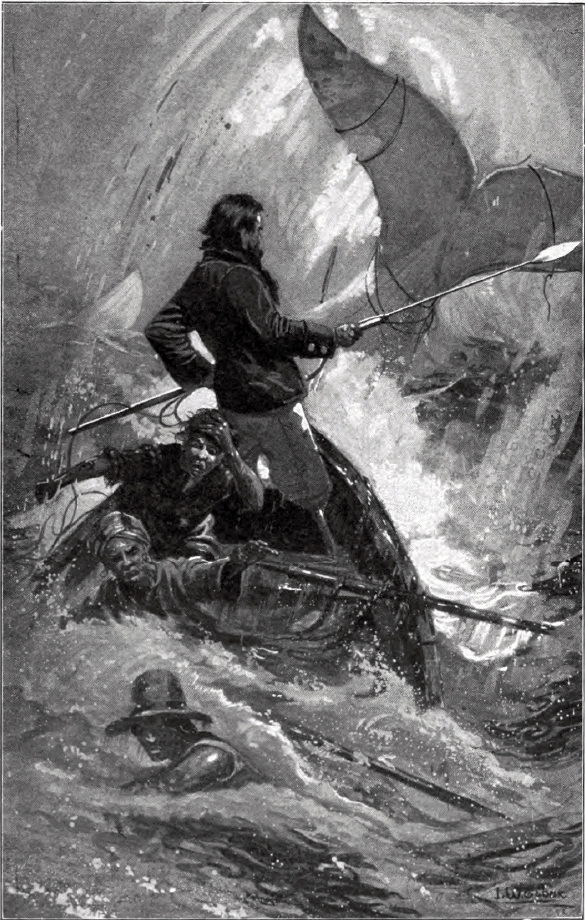Like most avid readers, books aren’t just a side-note in my life, a mild but harmless diversion. Instead, books often become the backdrop against which I live my life, the questions facing characters raising themselves in unexpected ways in my own life.
_frontipiece.png/640px-The_Library_(Lang)_frontipiece.png)
I’ve been thinking a lot lately about this bookish lens. A couple of weeks ago, I read Rebecca Mead’s fascinating, My Life in Middlemarch, a hard-to-classify book that is part biography, part memoir, part literary history–and all about the transformative power of George Eliot’s Middlemarch. In it, Mead describes how reading this book at different times in her life changed the way she saw herself.
I think we’ve all experienced something of the way language transforms our lives, and the lens through which we view ourselves, particularly with scriptures. But I find it happens with other literature too.
In graduate school, one of my professors told us that she read Moby Dick every year: she could throw herself and her questions at the book and always find answers. Since Moby Dick isn’t my particular poison, I remember being amused by this reaction, until I started paying attention to my own reading habits and found myself doing the same thing. I look for myself in characters, I look for world-views that help illuminate my own.

For me, one of those powerful books was also Middlemarch (I even wrote an honors thesis on it), which drew me to Mead’s book in the first place. I encountered Middlemarch as a sophomore at BYU, in John Bennion’s Nineteenth-century British literature course. Professor Bennion introduced the book by saying, “If I were a BYU bishop–which I’m not–I would make this required reading for all engaged couples.” He didn’t answer the question of whether engaged couples would be willing to plow through a 700+ page novel, but the book’s framing of marriage and courtship (it begins with a marriage in an era when most books ended with them) certainly influenced my own expectations. Eliot’s devastating critique of a courtship whose cobwebbed imaginings could be “pinched into pilulous smallness” has stayed with me for years.
But more than that, Eliot’s story gave me language with which to understand my own moral awakening, which would launch me into the mission field less than a year later. Of the heroine Dorothea (a “modern-day St. Theresa”), Eliot writes:
We are all of us born in moral stupidity, taking the world as an udder to feed our supreme selves: Dorothea had early begun to emerge from that stupidity, but yet it had been easier to her to imagine how she would devote herself to Mr Casaubon [her husband] . . . than to conceive with that distinction which is no longer reflection but feeling–an idea wrought back to the directness of sense, like the solidity of objects–that he had an equivalent centre of self, whence the lights and shadows must always fall with a certain difference.
This idea, that other people have “an equivalent centre of self,” an equally valid but different perspective, has helped me develop empathy as few things have (outside of scripture).
Another pivotal book is Dorothy Sayers’ uncannily prescient Gaudy Night, which I read for the first time in graduate school. This book comes late in the series of her Peter Wimsey mysteries, but it has a heft the others don’t have. In it, Peter’s friend (and love interest) Harriet Vane struggles to solve an unpleasant mystery at her old house in Oxford. But really, she struggles to decide whether or not to accept Peter, and, more critical for me, whether it is possible for a woman to have both a life of the heart and a life of the mind. I had just met the man who would be my husband, and I struggled with cultural expectations that I devote myself to my family opposed to my own academic ambitions. Though Sayers’ wrote her novel in the 1930s, it spoke to me nearly 70 years later. As Harriet worked through her dilemmas, I did too, finding the process both moving and cathartic.
Books do a lot of things: they entertain, they teach, they preach, they puzzle. But the best books help us see ourselves in a different slant of light.
I would love to hear what books have been transformative in your life–and why.
Continue reading at the original source →



